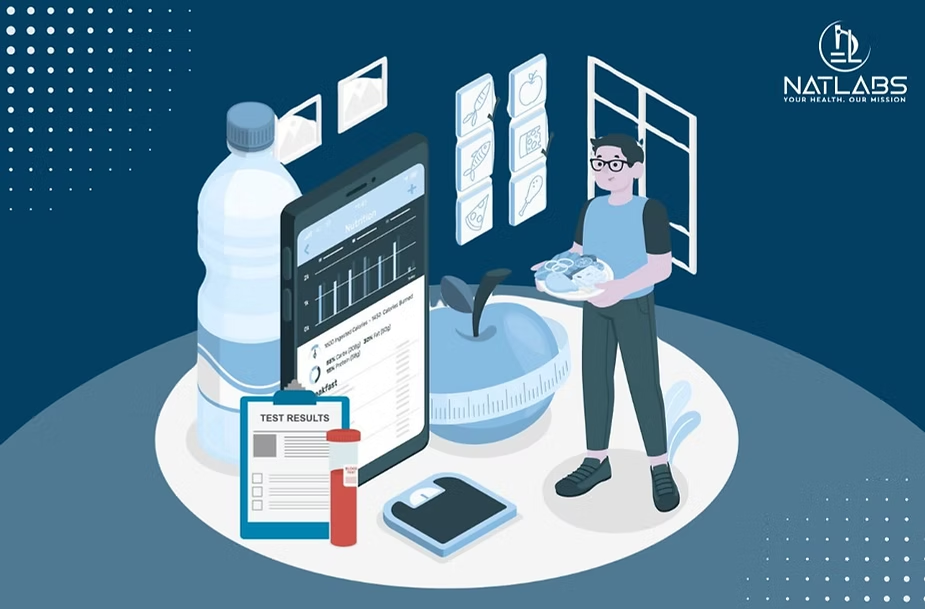
The days when healthcare meant waiting until you felt unwell before seeking medical attention are rapidly becoming a thing of the past. In modern India, where technological advancement meets traditional wellness wisdom, a quiet revolution is reshaping how we approach health, one that emphasises prevention over cure and early detection over late intervention.
From Symptom-Chasing to Health-Building
Traditional healthcare often resembled a fire brigade approach: rushing to treat problems after they’d already caused damage. Today’s preventive healthcare model flips this script entirely. Instead of waiting for chest pain to signal heart disease or fatigue to indicate diabetes, modern diagnostics help us identify and address health risks while they’re still manageable whispers rather than loud alarms.
This shift is particularly relevant in the Indian context, where lifestyle diseases are rising rapidly. With urbanisation, changing dietary patterns, and increased stress levels affecting millions of Indians, the ability to catch health issues early has never been more crucial.
The Life-Changing Power of Early Detection
Consider this remarkable fact: detecting breast cancer in its earliest stages gives patients a 99% five-year survival rate, compared to just 27% when caught in later stages. For Indian women, where cultural barriers sometimes delay seeking healthcare, early detection through regular screening becomes even more critical.
The economic impact is equally compelling. Every rupee spent on preventive diagnostics can save up to three rupees in treatment costs later. For Indian families, where healthcare expenses can be financially devastating, this prevention-focused approach offers both health and economic security.
Early detection doesn’t just save lives and money—it preserves quality of life. When conditions like diabetes or hypertension are caught early, simple lifestyle modifications and minimal medication can often prevent complications that would otherwise require major interventions.
The Modern Diagnostic Toolkit
Laboratory Advances Beyond Basic Blood Work
Today’s laboratory diagnostics go far beyond the basic blood sugar and cholesterol tests of the past. Comprehensive metabolic panels can reveal subtle imbalances before they manifest as symptoms. Hormone assessments help explain unexplained fatigue, mood changes, or reproductive issues that affect millions of Indian women and men.
Genetic testing, once the stuff of science fiction, now helps Indian families understand their predisposition to conditions like thalassaemia, diabetes, or heart disease. This knowledge empowers families to make informed decisions about lifestyle, family planning, and preventive care.
Biomarker analysis represents perhaps the most exciting frontier. These sophisticated tests can detect molecular signatures of disease processes years before traditional symptoms appear, offering unprecedented opportunities for early intervention.
Imaging Technology Revolution
Modern imaging has transformed from grainy X-rays to crystal-clear digital pictures that reveal the tiniest abnormalities. MRI and CT scans can detect tumours when they’re still easily treatable. Advanced ultrasound technology can assess organ function and blood flow with remarkable precision.
Artificial intelligence is revolutionising image interpretation, helping doctors spot subtle changes that human eyes might miss. In India, where specialist radiologists may be scarce in rural areas, AI-assisted imaging helps ensure consistent, accurate diagnoses regardless of location.
The Convenience Revolution
Point-of-care testing brings laboratory-quality diagnostics directly to patients. A small device can now measure blood glucose, cholesterol, or detect infections within minutes, eliminating the wait time and multiple visits that once made regular monitoring challenging.
Home testing kits have democratised health monitoring, making it possible for people in remote areas or those with mobility challenges to access essential diagnostic services. From Mumbai apartments to rural Punjab villages, anyone can now collect samples for sophisticated laboratory analysis.
Technology as the Great Enabler
Artificial intelligence is becoming healthcare’s most powerful ally, analysing vast amounts of data to identify patterns invisible to human observation. Machine learning algorithms can predict disease risk by analysing everything from blood test results to lifestyle factors, enabling truly personalised prevention strategies.
Big data analytics allows healthcare providers to understand population-level health trends whilst maintaining individual privacy. This capability is particularly valuable in India’s diverse population, where genetic, environmental, and lifestyle factors vary dramatically across regions and communities.
Wearable technology transforms everyday life into continuous health monitoring. Smartwatches and fitness trackers provide real-time insights into heart rate, sleep patterns, and activity levels, alerting users to potential issues before they become serious problems.
Personalised Prevention: Healthcare That Fits You
Modern diagnostics enable truly personalised healthcare approaches. Rather than applying one-size-fits-all recommendations, doctors can now tailor prevention strategies based on individual genetic profiles, biomarkers, and risk factors.
For Indian patients, this personalisation is particularly valuable given our genetic diversity and varying lifestyle patterns. A Gujarati businessman’s prevention plan might differ significantly from a Kerala farmer’s, even if they have similar baseline health metrics.
Risk stratification helps identify individuals who need more intensive monitoring or earlier intervention. This targeted approach ensures that healthcare resources are used most effectively whilst providing peace of mind for those at lower risk.
Real-World Transformations
Cancer screening programmes using modern diagnostics have dramatically improved survival rates. Mammograms and colonoscopies catch cancers at treatable stages, whilst newer tests like liquid biopsies can detect cancer DNA in blood samples even earlier.
Cardiovascular disease prevention has been revolutionised by advanced lipid profiling and cardiac risk assessment tools. These tests help Indian patients—who face higher genetic risks for heart disease—make informed decisions about diet, exercise, and medical interventions.
Diabetes prevention represents perhaps the greatest success story. Modern testing can identify prediabetes and insulin resistance years before diabetes develops, providing ample opportunity for lifestyle interventions that can prevent or delay disease onset.
Making Advanced Care Accessible
The democratisation of diagnostics through home collection services has transformed healthcare accessibility across India. Patients no longer need to travel long distances or take time off work for routine testing. Results delivered digitally ensure rapid access to health information.
Comprehensive health packages bundle multiple tests into convenient, cost-effective screenings that encourage regular monitoring. These packages make preventive care accessible to middle-class Indian families whilst ensuring thorough health assessment.
Challenges and Future Horizons
Cost and accessibility remain challenges, particularly in rural areas. However, innovations in technology and service delivery are steadily reducing these barriers. Mobile diagnostic units, telemedicine integration, and simplified testing devices are extending advanced diagnostics to previously underserved populations.
Data privacy and security require careful attention as diagnostics become increasingly digital. Protecting patient information whilst enabling beneficial data sharing represents an ongoing challenge that requires robust safeguards and patient education.
The future promises even more remarkable advances: nanotechnology-based diagnostics, real-time molecular monitoring, and AI systems that can predict health issues weeks or months in advance.
A Healthier Tomorrow
Modern diagnostics represent more than technological advancement—they embody a fundamental shift towards healthcare that prevents rather than merely treats disease. For Indian families, this transformation offers unprecedented opportunities to build and maintain health across generations through early detection of hereditary conditions like diabetes and heart disease, personalised prevention strategies based on genetic profiles, and continuous monitoring that catches health issues before they become serious.
As these technologies become more accessible and affordable, they promise to democratise high-quality healthcare through innovative delivery methods like mobile diagnostic units reaching remote villages, AI-powered analysis that provides specialist-level interpretation even in areas lacking expert radiologists, home collection services that eliminate geographical barriers, and cost-effective testing packages that make comprehensive screening affordable for middle-class families. This ensures that advanced diagnostics benefit not just urban elites but all Indians, regardless of geography or economic status, creating a future where a farmer in rural Rajasthan has access to the same quality diagnostic tools as a businessman in metropolitan Mumbai. Leading diagnostic providers like NATLABS are already making this vision a reality by bringing cutting-edge technology directly to patients’ homes, offering comprehensive health packages that combine advanced testing with expert interpretation, ensuring that every Indian family can access world-class preventive healthcare regardless of their location or circumstances.
Ready to experience the future of preventive healthcare?
+918010000960 | natlabshealthcare.com
Prevention today, peace of mind tomorrow


